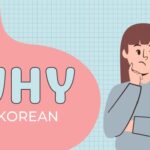It’s a common experience – you swallow, and suddenly, your ears pop. This peculiar sensation, often accompanied by a slight crackling or clicking sound, is usually harmless and a sign that your body is working correctly. But what exactly causes this phenomenon? Let’s delve into the science behind why your ears pop when you swallow and when it might be a cause for concern.
The Science Behind Ear Popping and Swallowing
To understand why your ears pop when you swallow, we need to talk about the Eustachian tube. This small passage connects your middle ear to your nasopharynx, the upper part of your throat behind your nose. The Eustachian tube’s primary role is to equalize pressure between your middle ear and the outside environment.
The Eustachian Tube’s Role
The middle ear is a space that needs to maintain roughly the same air pressure as the atmosphere around you for optimal hearing. When the air pressure outside changes, such as when you ascend or descend in an airplane or go up a mountain, the pressure in your middle ear can become different. This pressure difference can cause discomfort, a feeling of fullness, and even muffled hearing.
How Swallowing Activates the Eustachian Tube
Normally, the Eustachian tube is closed to protect the middle ear from sounds and infections. However, actions like swallowing, yawning, or chewing can open this tube. When you swallow, muscles in your throat contract, which pulls open the Eustachian tube for a brief moment. This opening allows air to flow in or out of your middle ear, equalizing the pressure. The “pop” you hear and feel is the sound of air pressure normalizing across your eardrum as the Eustachian tube opens and closes.
When Ear Popping Is Normal
Ear popping when you swallow is typically a normal and healthy bodily function. It’s often experienced in situations involving altitude changes, such as:
Pressure Changes
- Flying in an airplane: During takeoff and landing, air pressure in the cabin changes rapidly, causing pressure differences in your ears. Swallowing helps to equalize this pressure.
- Driving through mountains: As you ascend or descend in altitude, the same pressure changes occur, and swallowing can alleviate ear pressure.
- Elevators: In tall buildings, rapid elevator rides can also lead to pressure changes that trigger ear popping when you swallow.
Clearing Blockages
Sometimes, your ears might pop when you swallow even without significant altitude changes. This could be due to:
- Minor Eustachian tube blockages: Slight congestion from a cold or allergies can temporarily block the Eustachian tube. Swallowing can help force it open and clear the blockage, resulting in a pop.
- Earwax movement: Though less common, swallowing might occasionally help to shift minor earwax buildup, contributing to the popping sensation.
When to Be Concerned About Ear Popping
While occasional ear popping when swallowing is normal, there are instances when it could indicate an underlying issue that requires medical attention.
Symptoms to Watch Out For
- Ear pain: If ear popping is accompanied by persistent ear pain, it could signal an ear infection or other ear problems.
- Dizziness or vertigo: Ear issues can sometimes affect balance. Popping with dizziness might indicate a problem with the inner ear or Eustachian tube.
- Hearing loss: If you experience reduced hearing along with ear popping, it could be a sign of fluid buildup, infection, or other conditions affecting hearing.
- Persistent or frequent popping: If your ears are popping excessively or constantly, even without swallowing or pressure changes, it’s worth investigating.
Potential Underlying Conditions
- Ear infections (Otitis Media): Infections in the middle ear can cause inflammation and fluid buildup, affecting Eustachian tube function and leading to abnormal popping, pain, and other symptoms.
- Eustachian tube dysfunction (ETD): This condition occurs when the Eustachian tube doesn’t open or close properly. It can result in persistent ear popping, pressure, fullness, and pain.
- Excessive earwax: While less directly related to swallowing, impacted earwax can sometimes contribute to ear discomfort and altered pressure sensations.
- Temporomandibular joint (TMJ) disorders: Problems with the jaw joint can sometimes cause ear-related symptoms, including clicking and popping sounds, due to the proximity of the TMJ to the ear.
Tips to Manage Ear Popping
For normal ear popping associated with pressure changes, you can try these simple techniques:
Simple Home Remedies
- Swallowing: Continue swallowing frequently, as this is the natural mechanism to open the Eustachian tube.
- Yawning: A big yawn is even more effective than swallowing at opening the Eustachian tube.
- Chewing gum or sucking on hard candy: These actions increase swallowing frequency and can help equalize pressure.
- Valsalva maneuver: Gently try to exhale while pinching your nose and closing your mouth. This can sometimes force the Eustachian tube open, but do it gently to avoid ear damage.
When to See a Doctor
If you experience any of the concerning symptoms mentioned earlier, such as pain, dizziness, hearing loss, or persistent popping, it’s essential to consult a doctor. An audiologist or otolaryngologist (ENT doctor) can properly diagnose the cause of your ear popping and recommend appropriate treatment. Treatment might include antibiotics for infections, ear drops for wax removal, or specific exercises and therapies for Eustachian tube dysfunction.
Conclusion
Ear popping when you swallow is usually a normal physiological process related to pressure equalization in your middle ear via the Eustachian tube. It’s a sign that your body is adapting to environmental changes. However, if ear popping becomes persistent, painful, or is accompanied by other concerning symptoms like dizziness or hearing loss, it’s important to seek medical advice to rule out any underlying conditions and ensure your ear health. Understanding why your ears pop empowers you to recognize what’s normal and when to seek professional help, ensuring you maintain healthy hearing and balance.
